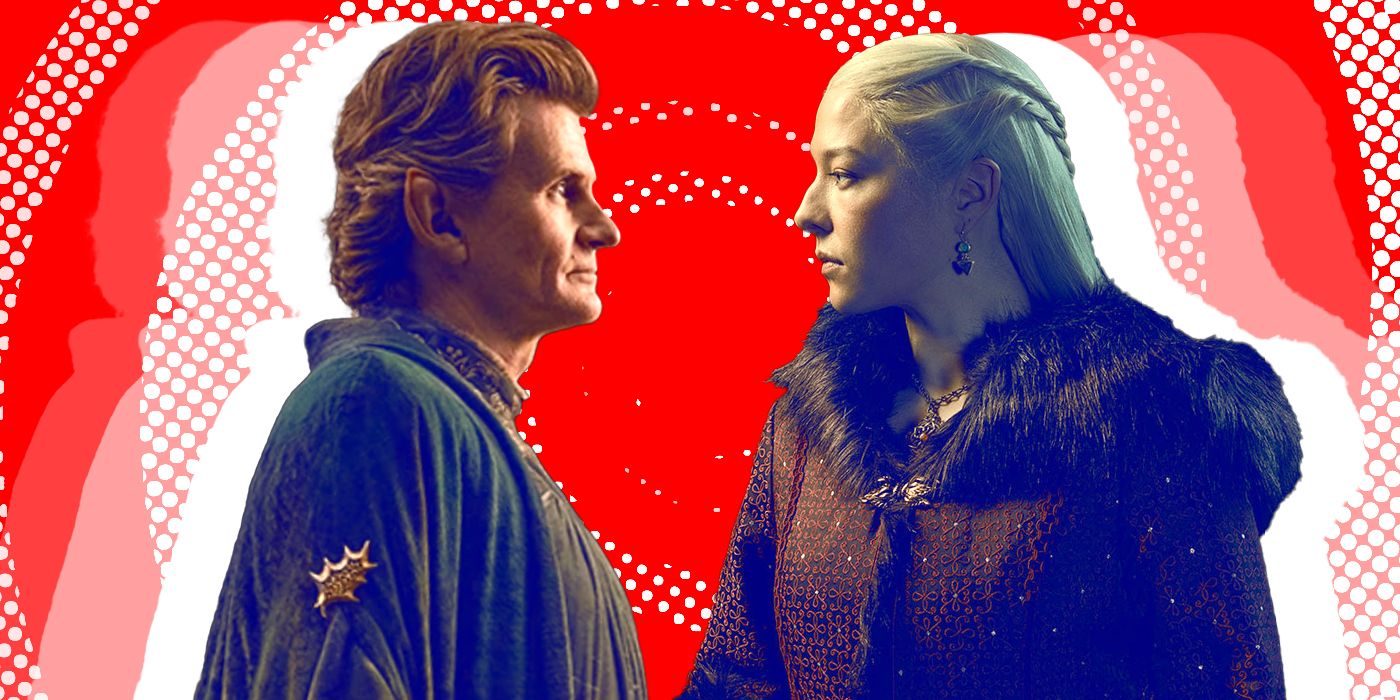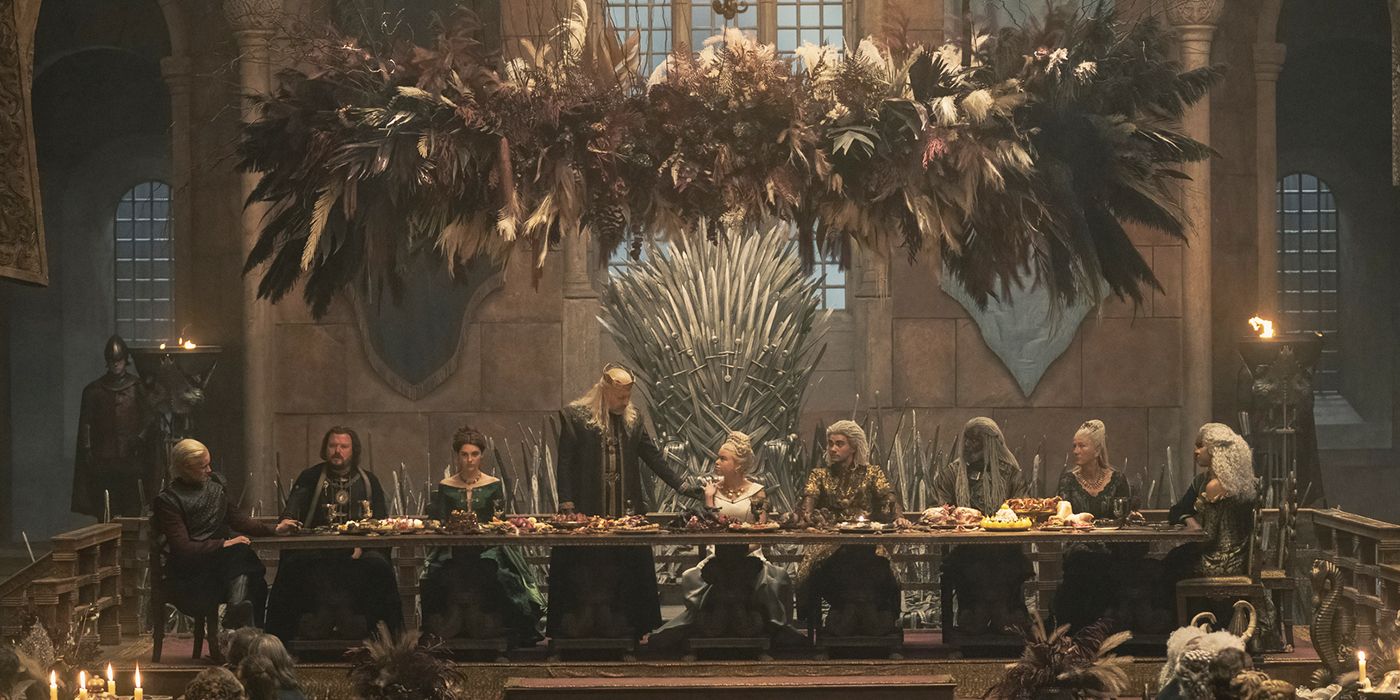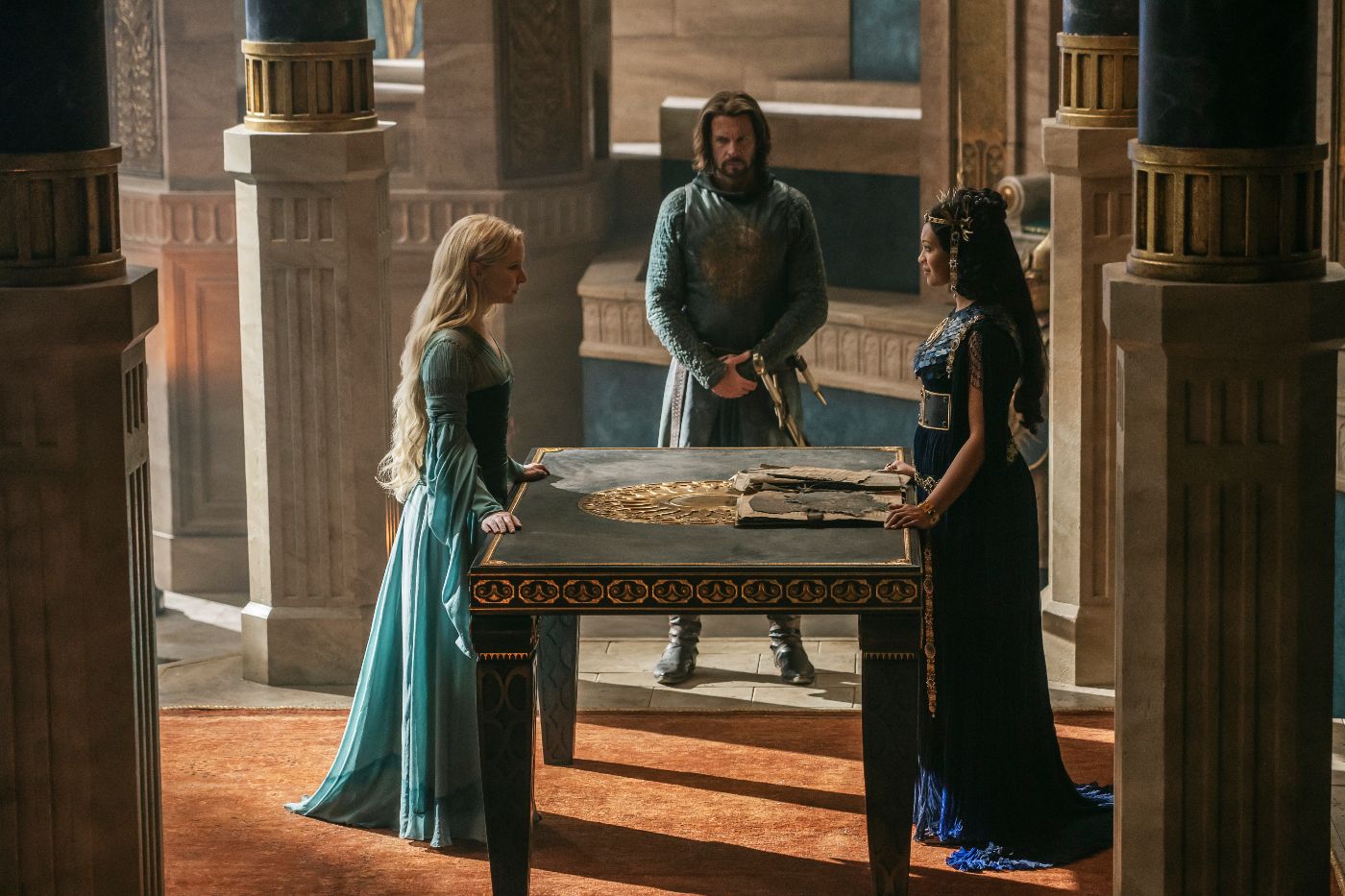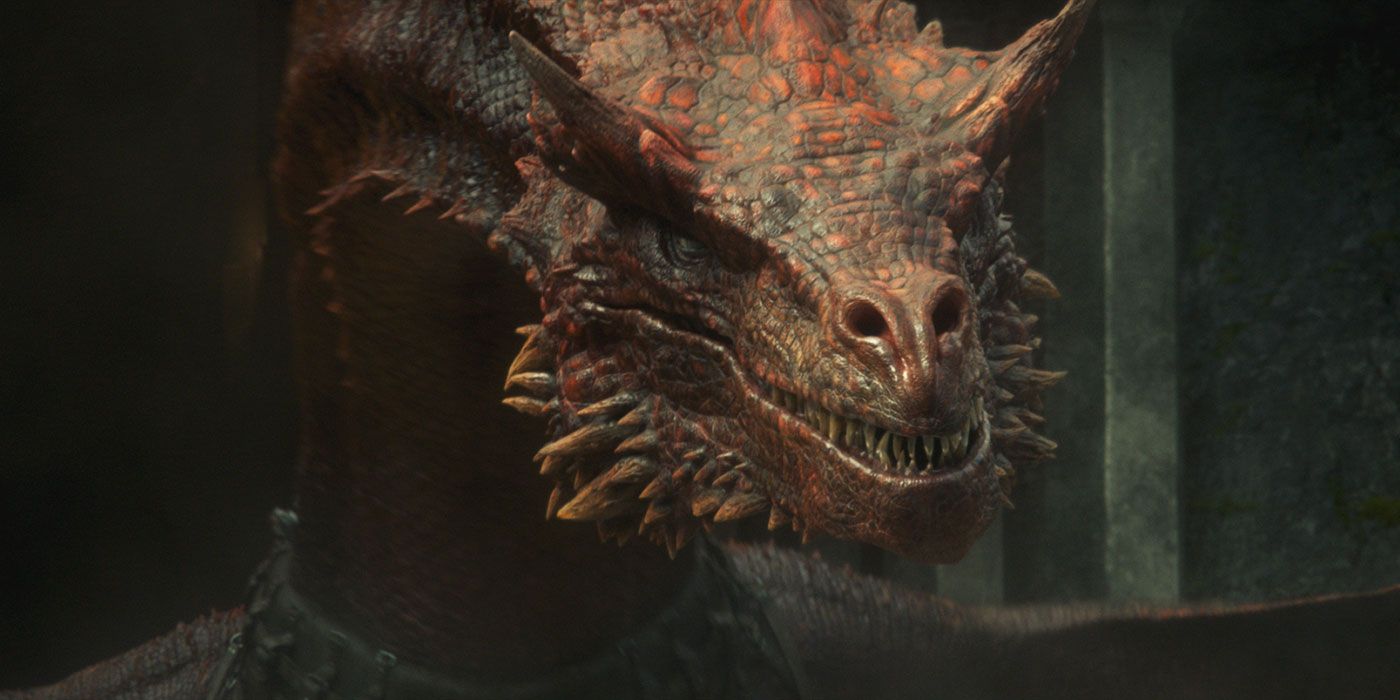Editor's Note: The following article contains mild spoilers for House of the Dragon and The Rings of Power. When HBO Max and Prime Video announced the release dates for House of the Dragon and The Lord of the Rings: The Rings of Power, the big question on everyone’s mind going into August was how these two mega fantasy IP franchise offerings would stack up against each other. The haze from the head-to-head open-field streaming battle is beginning to ascend as we turn the corner into the homestretch of Season 1 of both series, and the answer is becoming underwhelmingly clear. Neither show has succeeded in its quest to become the flagship property their streamer wanted it to be - each series lacking in inverse, opposite ways. It turns out, most interestingly, the flaws that undermine House of the Dragon and The Rings of Power are mirror images of the other - two disparate pieces of a potentially great show.
House of the Dragon Suffers With a Limited Scope
House of the Dragon’s main issue is how limited it is in its scope. For a fantasy series about seven vast kingdoms dueling for power, we have spent an awful lot of time watching a small group of characters hold conversations in the same couple of rooms in a single castle. This constraint could simply be the narrative box the writers have put themselves in (after all, this is a show about the Targaryens, and they live in King’s Landing), or it even more simply could be HBO’s attempt to reign in budgets. A fact that is unlikely to change under current management. Whatever the reason, House of The Dragon has suffered as a result. Absent that world-building, it frequently feels like a thin slice off the top of its wide-ranging Game of Thrones predecessor.
There may be a clear narrative direction - there is no doubt that we are heading towards a civil war within the Targaryens - but the series is made all the more stale by the dense exposition required to get us there. At-home viewing sometimes feels like watching a group of over-qualified actors in a live recreation of a Westerosi Wikipedia article. House of the Dragon may enjoy the benefit of having its original author (George R.R. Martin) onboard creatively, but that steady hand’s devotion to its source material may inadvertently be causing the show to drag.
The Rings of Power Struggles With a Strong Narrative
Rings of Power has all these problems but in reverse. Rather than a tight narrative, the show seems preoccupied chiefly with its visuals, seemingly hell-bent on making you feel like you’ve stepped into a dorm room Magic Eye poster. It’s easy to see where Bezos’ billions went, and there’s no doubt that massive investment produces some awe-inspiring visuals as the show sweeps you across vast vistas and into shimmering cities (repeatedly recreating this moment from The Fellowship of the Ring). The problem is Rings of Power is all spectacle and no substance. It may span the far reaches of Middle-Earth, gleefully flinging you across the map from one group of characters to another, but only because it’s desperately looking for a story (to paraphrase Bilbo Baggins, it feels sort of stretched - like butter scraped over too much bread).
That lack of a narrative foundation is undoubtedly because Amazon Studios' IP rights hamstring Rings of Power. Whereas House of the Dragon has a fully-realized source text in Fire & Blood to serve as the basis for its story, Rings of Power does not - its IP rights granted through a strange loophole with Middle-Earth Enterprises, which owns the publishing rights to The Lord of the Rings. As a result, the series explores new ground with some original characters, but they operate within a story derived from the literal appendices of The Lord of the Rings. If the narrative feels unclear in its ambition, it's because its source text is literal backstory.
Both Shows Should Learn From Each Other's Flaws to Improve
The list goes on and on. Whereas House of the Dragon attempts to invest time in the messy interpersonal relationships of King’s Landing, Rings of Power does not even bother (can anyone explain what anyone on the show wants outside of not dying?). Rings of Power sort of knows how to flash a smile (more Durin and Disa, please!), but House of the Dragon lacks the sense of humor of its forebearer. House of the Dragon has the edge in viewership numbers (it’s definitely the watercooler show), but it’s delivering a B- version of what fans are nostalgic for; Rings of Power likely provides the exact kind of high-fantasy die-hard Tolkien fans want, but that group alone isn’t big enough to propel the series into the blockbuster hit Prime Video wants it to be. If they could be fused, House of the Dragon and Rings of Power could create a fully-realized show, each fulfilling what the other lacks. Standalone, they’re left with clipped wings as they chase the previous heights of their source material.




